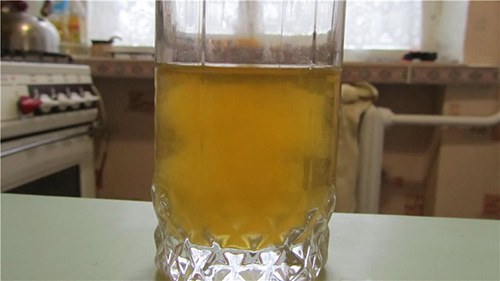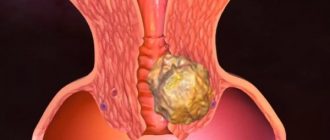ADHD in Women Adults
 If you’re only beginning to notice ADHD symptoms or you’ve had to deal with the disorder for years, obtaining an diagnosis and taking action can make a big difference in your life.
If you’re only beginning to notice ADHD symptoms or you’ve had to deal with the disorder for years, obtaining an diagnosis and taking action can make a big difference in your life.
ADHD women are often plagued by a variety of symptoms and issues that could affect their lives. With a little help, they can manage ADHD symptoms and be more in control of their lives.
Signs and symptoms
ADHD is a condition that affects a lot of people, and is often not recognized as such. There are many reasons this occurs. One reason is that girls and women are more likely to exhibit symptoms that are less apparent or disruptive to society than men, which can lead to the disorder being ignored.
Another reason ADHD isn’t recognized as widely as it could be is due to the symptom list that is included in the DSM-5 that was developed with a history of research in males in mind. This can result in women and girls being misdiagnosed or experiencing symptoms that aren’t covered in the DSM-5. This could cause a negative impact on their mental health.
Thankfully, the recent increase in awareness of ADHD among girls and women has made it easier for women to receive an accurate diagnosis. In turn, there are more options for treatment for those suffering from this condition, including treatments for ADHD and medications.
ADHD symptoms include difficulty in focusing, impulsivity or hyperactivity. This can hinder social interactions, schoolwork as well as everyday life.
AdHD can affect your work and relationships with your loved ones as you mature. These issues can make you feel depressed and lonely, and make it difficult to get things done.
Small modifications can be made to reduce the symptoms. For instance, you can make it a habit to complete your daily tasks immediately instead of putting off the task and then forgetting about it later. You can also establish goals and plan your day to ensure you get the most from your day.
Having ADHD can also make it difficult to relax or slow down, which could lead to feelings of anxiety and depression. It can be a great idea to find time to do the things you love and recharge to boost your mental wellbeing.
It is important to remember that the symptoms of ADHD can be treated with ease in both children and adults. The use of medication and behavioral therapy can assist you in managing your ADHD symptoms and live an enjoyable life.
It is crucial to receive a diagnosis for ADHD early as you can. This will allow you to find the best treatment that fits your unique needs and symptoms. It can give you the confidence to seek out the assistance you require and acquire the coping strategies you require to conquer your ADHD.
Diagnosis
Attention deficit hyperactivity disorder (ADHD) is the most frequent neurodevelopmental disorder. It can be diagnosed in childhood and last throughout adulthood. The onset of ADHD is usually noticed before 13 years of age but it can be detected at any time.
While adhd screening for women is most common in males, there are increasing number of ADHD cases among women. This is because women are more likely to develop coping strategies which can help mask symptoms. Even when ADHD is found to be present in women, it may be difficult for her to deal with the unique challenges ADHD can bring.
AdHD can trigger a variety of problems. This could lead to persistent memory loss or the tendency to be impulsive.
A diagnosis of ADHD can have a profound impact on a person’s life, both in school and in the workplace. It can affect how you interact with people, and how you approach work.
You might also feel anxious and annoyed when your symptoms aren’t under control. This could lead to lower self-esteem and an increased chance of developing anxiety and depression.
ADHD can affect a person’s professional and personal life, and also affect relationships in subtle and not so subtle ways. You may find it difficult to connect with others if you miss important appointments or forget birthdays.
This can have negative effects on the relationship between a person and their spouse, family member or friend. This is especially true when the other person has difficulty being aware of and understanding the symptoms and adapting to them.
Feeling unworthy or insufficient to living up to the expectations of society can trigger feelings of being unworthy, and even lack of confidence. You may feel hesitant to try new things or undertake difficult tasks.
A diagnosis of ADHD can help manage your symptoms and get you back to doing what you love. Treatment options may include behavioral therapy, medication, and the combination of both. Your doctor will devise a plan that is right for you, based upon the kind of treatment you select.
Treatment
ADHD is a disorder that is complex and has numerous treatment options. It can be a lifelong condition that is treatable with treatment with medication and behavioral therapy. The best treatment will help you manage your symptoms and allow you to live a full life.
Stimulant medications are the most commonly prescribed form of treatment for attention-deficit/hyperactivity disorder in adults and teenagers. They include amphetamine (Ritalin) and the methylphenidate (Adderall).
If these medicines aren’t effective or cause side effects, different types of adhd in women of medications could be prescribed. Certain people suffering from ADHD can also use nonstimulants. Atomoxetine (Strattera) is the first non-stimulant that has been licensed for adults suffering from ADHD is Atomoxetine.
Certain women may discover that stimulants aren’t for them or have a co-existing illness which makes it difficult to take their medication. Antidepressants and mood stabilizers could be a great option for women suffering from ADHD and other mental health issues.
Psychoeducation regarding ADHD and treatment options should be provided alongside pharmacological treatments. This is particularly crucial for young girls, since it will be able to warn them of the increasing possibility of self-harming, eating disorders and vulnerability to exploitation.
Teenagers with ADHD are at risk of developing low mood and anxiety, which can lead to self-harming behavior like cutting. These behaviors are typically seen in the adolescent years or early adulthood [128,129]. These behaviors are essential to recognize and assess them and to determine if they are trait-like, or just sporadic in nature.
Multimodal ADHD treatment is suggested for girls and women. It takes into account their stage of life the severity of their symptoms, as well as their demands. This includes a range of different medications, behavioral therapy and counseling as well as stress management techniques. workplace and homelife arrangements.
A small percentage of girls with ADHD are diagnosed during their school years and treated with medication or cognitive behavioral therapy (CBT). These treatments can help them to think and act differently and help them to be more focused on their goals.
The adhd in older women (Learn Alot more) in women of the adult age may be more complex because they face a myriad of issues and responsibilities that come with age. This is especially applicable to women who have dependents or children that require support and assistance with daily tasks. They may also experience hormonal fluctuations during their menstrual cycle, or due to pregnancy and perimenopause.
Resources
There are many resources that can assist you in understanding ADHD and manage it if an adult woman who has been diagnosed with it. These resources include support groups, information websites and a variety of organizations.
One of the most important things you can do in dealing with your ADHD symptoms is to educate your loved ones and yourself about the disorder. This will enable them to assist you better.
It is ideal to share with them what you’ve had to go through, why you feel that way and how it has affected you. Although it isn’t easy to do but it will allow you to make the right decisions about how to help yourself.
Another important aspect to consider when dealing with ADHD is seeking treatment. There are a myriad of options for treatment such as medications, lifestyle and behavioral treatment, and psychotherapy.
Your doctor can recommend a mental health provider or psychiatrist that specializes in ADHD. If you’re having difficulty finding an effective treatment plan, ask to be referred.
If you have children who suffer from ADHD If you have children who are struggling with adhd symptoms women, you may want to join an adult support group for parents of children suffering from attention deficit disorder (ADHD). These support groups provide a safe place to share your experiences with others and make connections with people who understand what you’re going through.
You may also want to consider joining an online support forum like Moms Living with ADD/ADHD or The ADHD Mama. These groups are totally free and allow you to discuss your issues with women who understand.
In addition to these online options, you may also seek help in a local ADHD support group. These gatherings are a great opportunity to gain knowledge about new strategies and discuss your experiences with others who have the same challenges similar to yours.
Invite your spouse to attend a couple’s workshop or support group where couples from different couples are sharing their experiences with ADHD. This can be a fantastic opportunity for your spouse to discover more about ADHD, and to help you make positive changes to your relationship.




